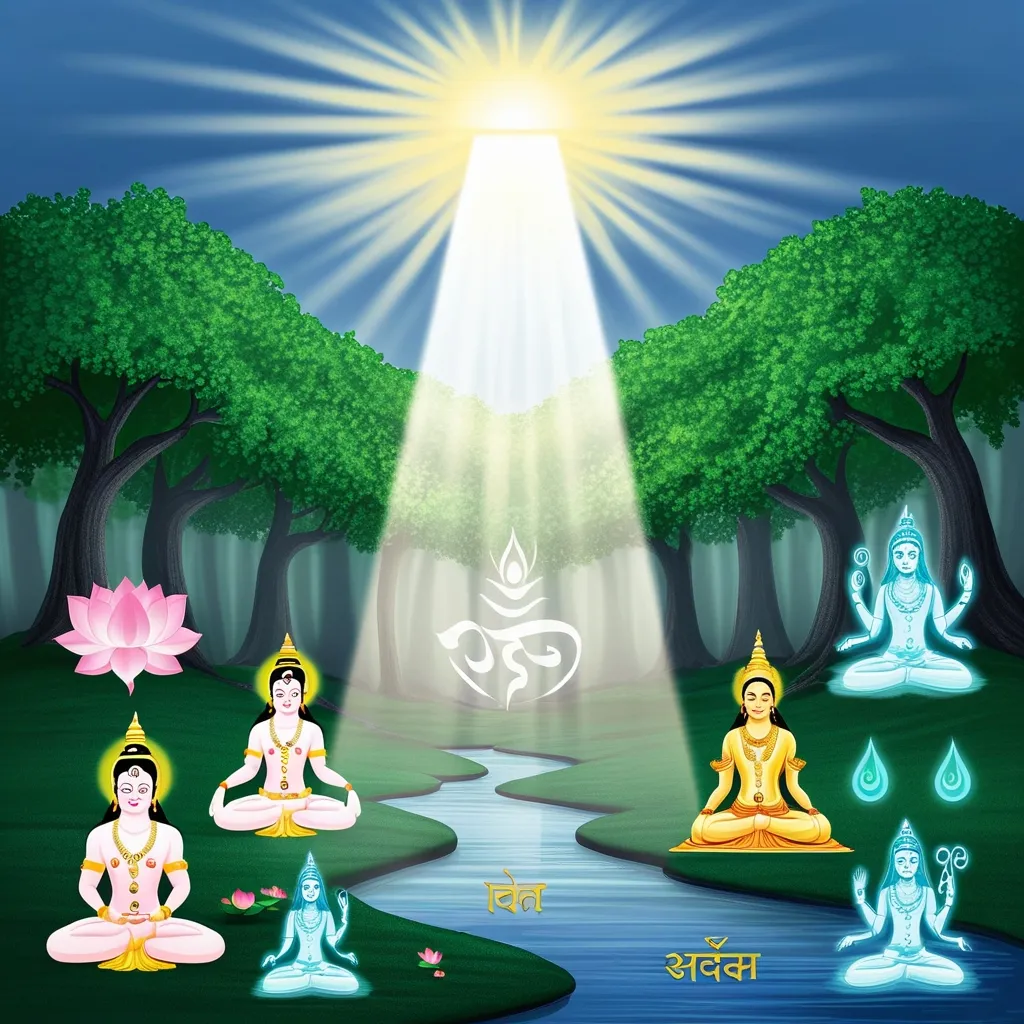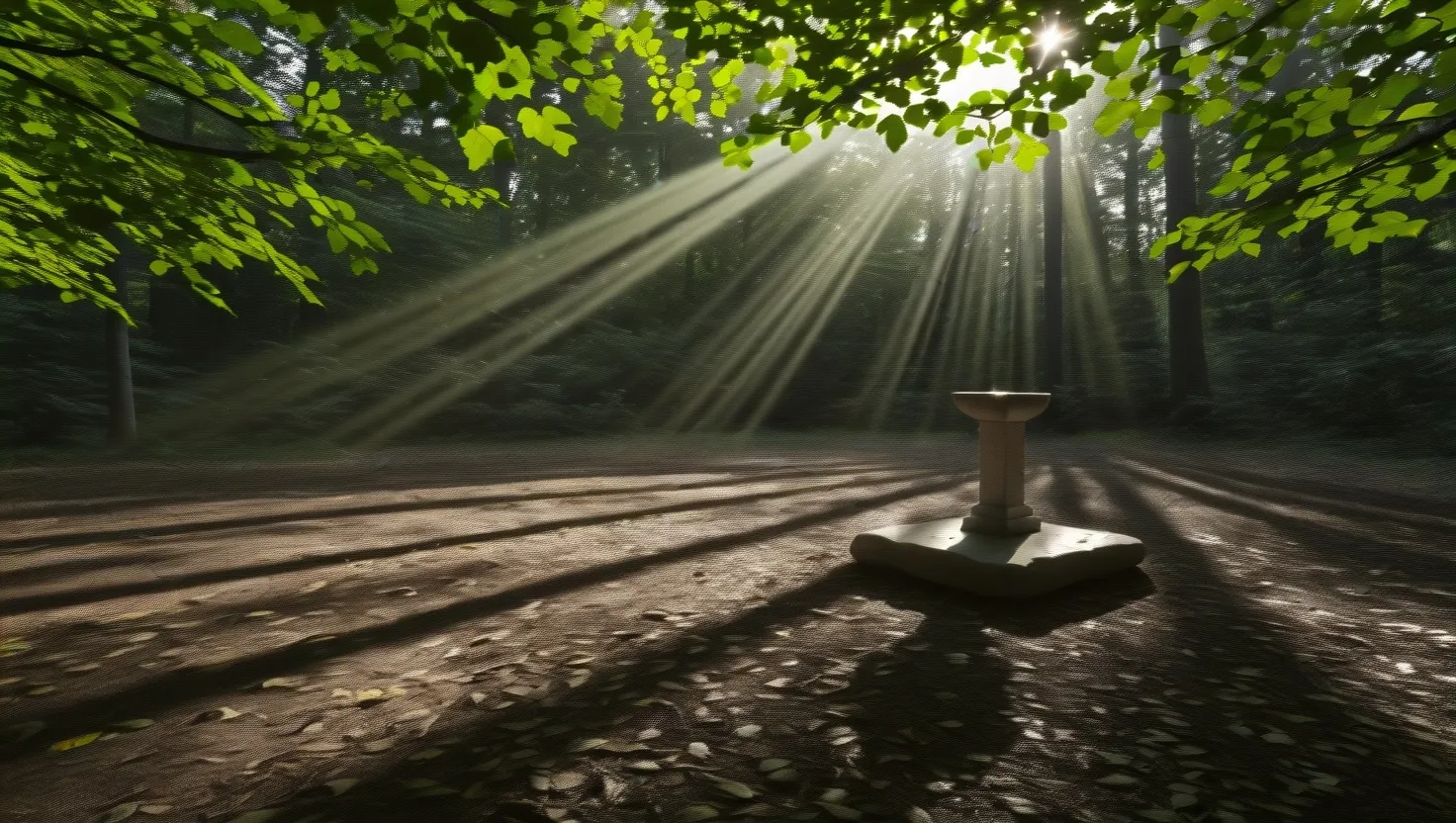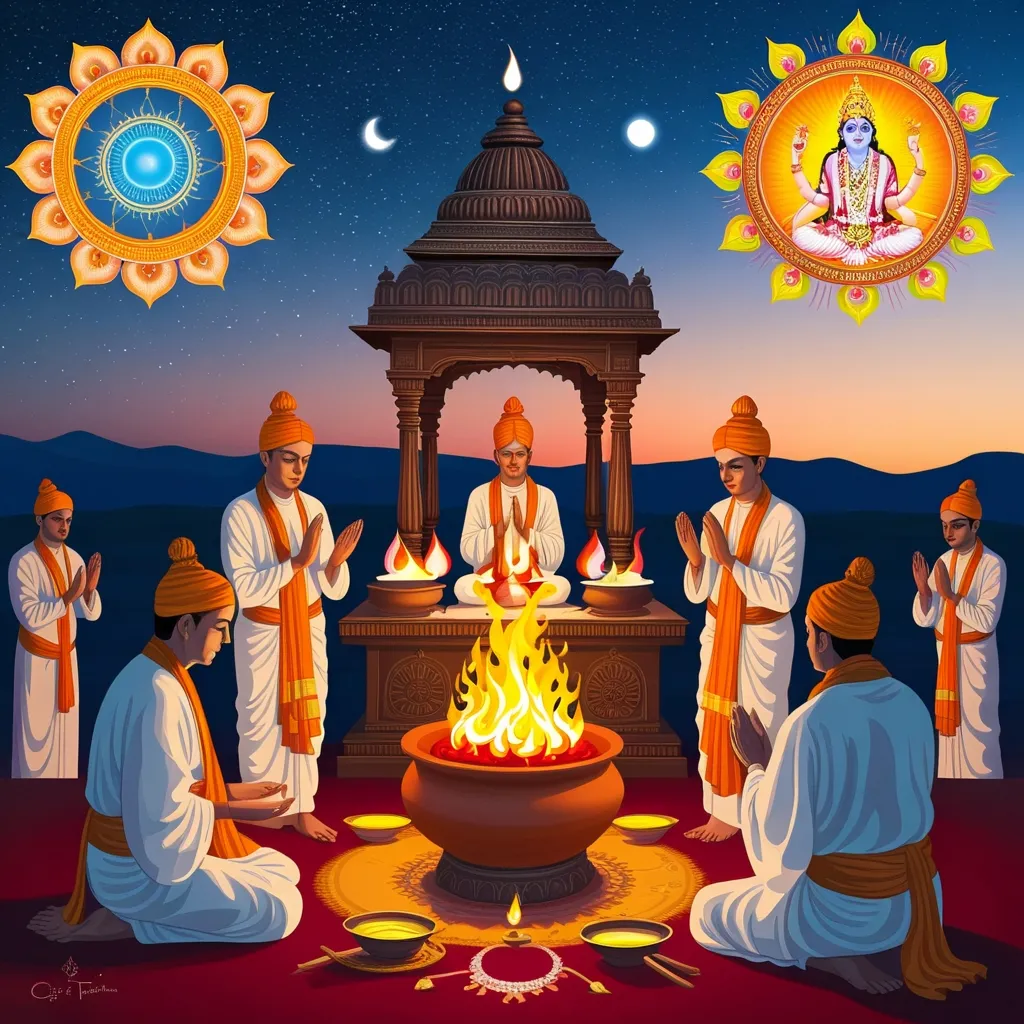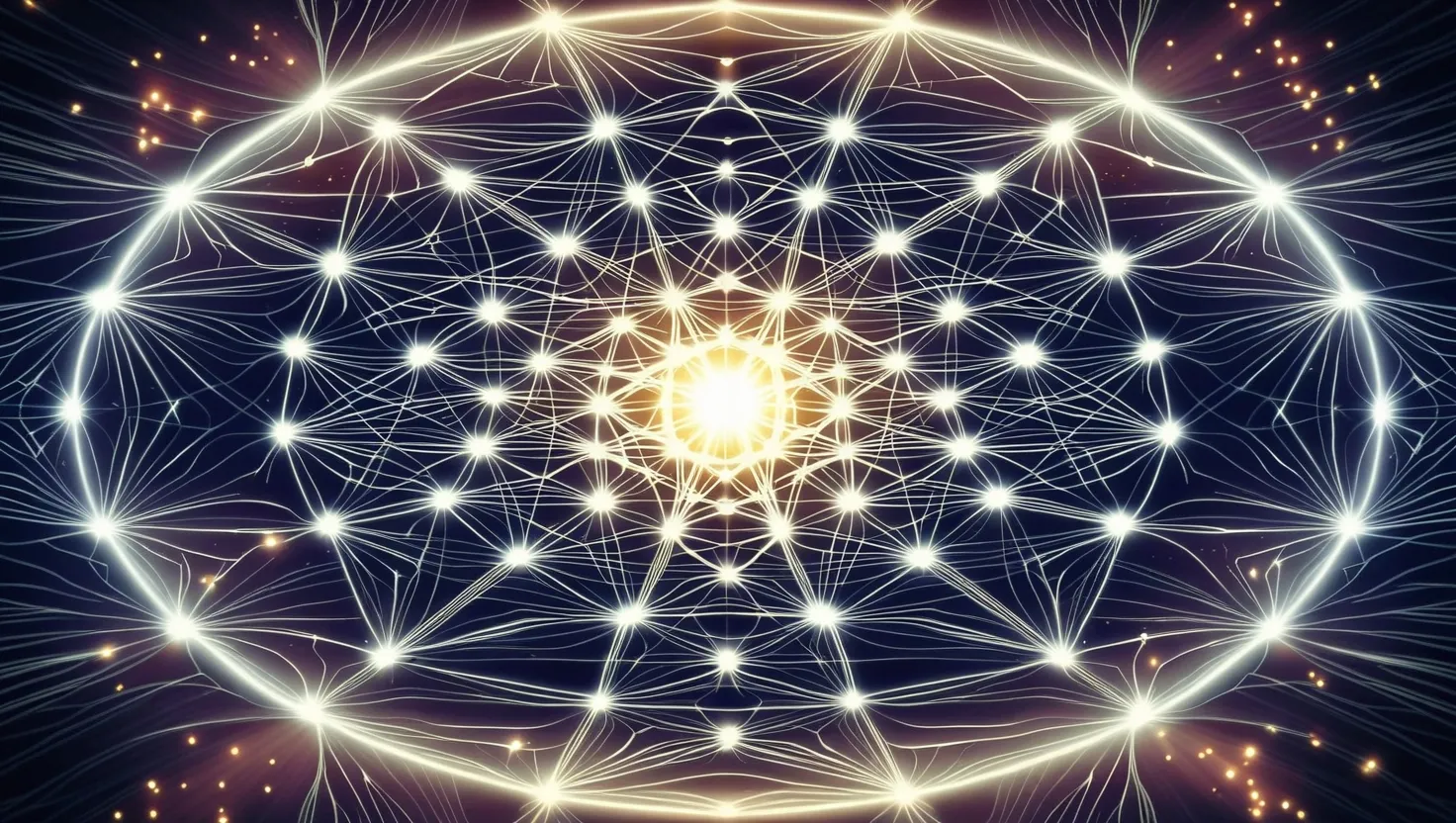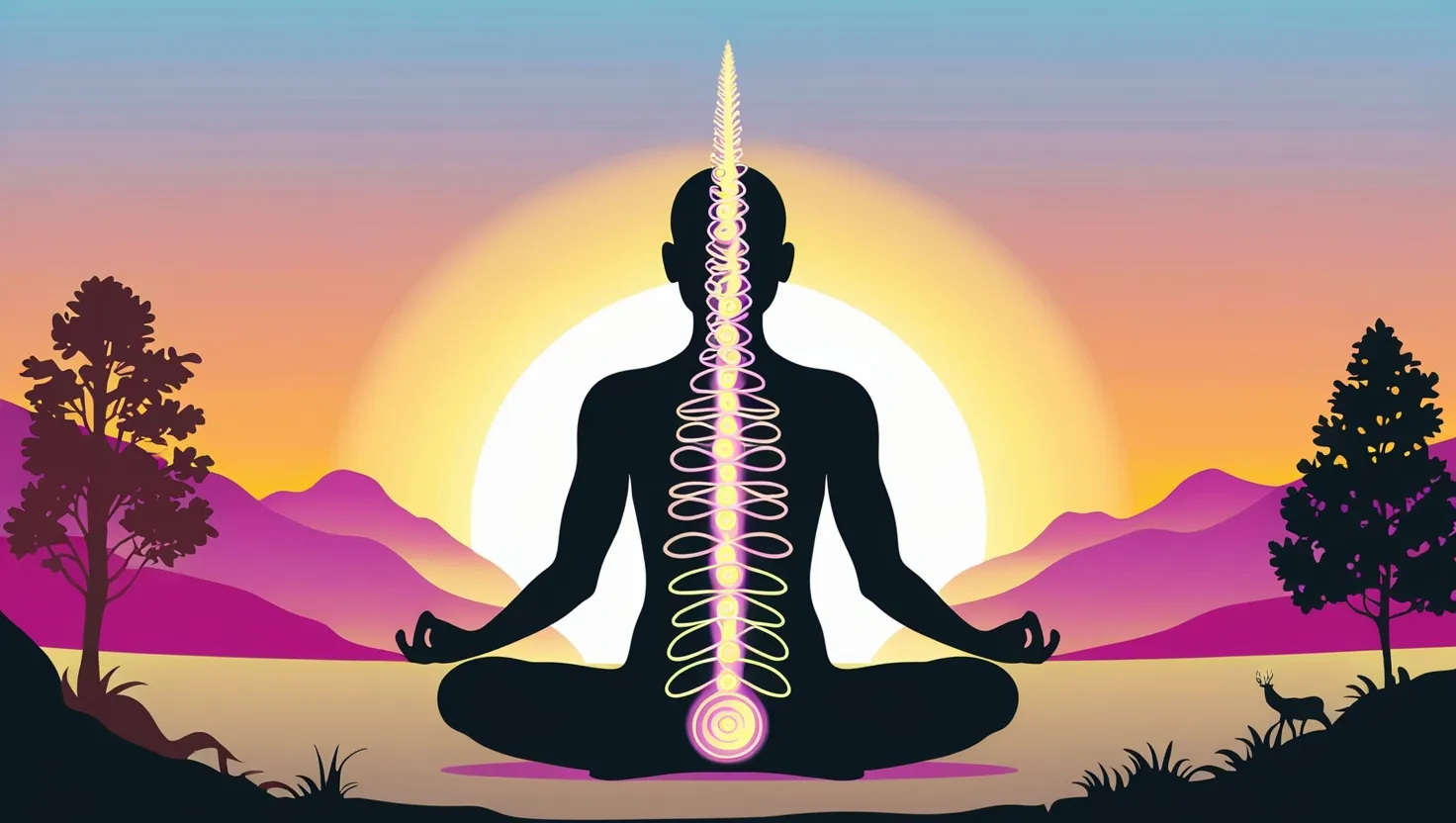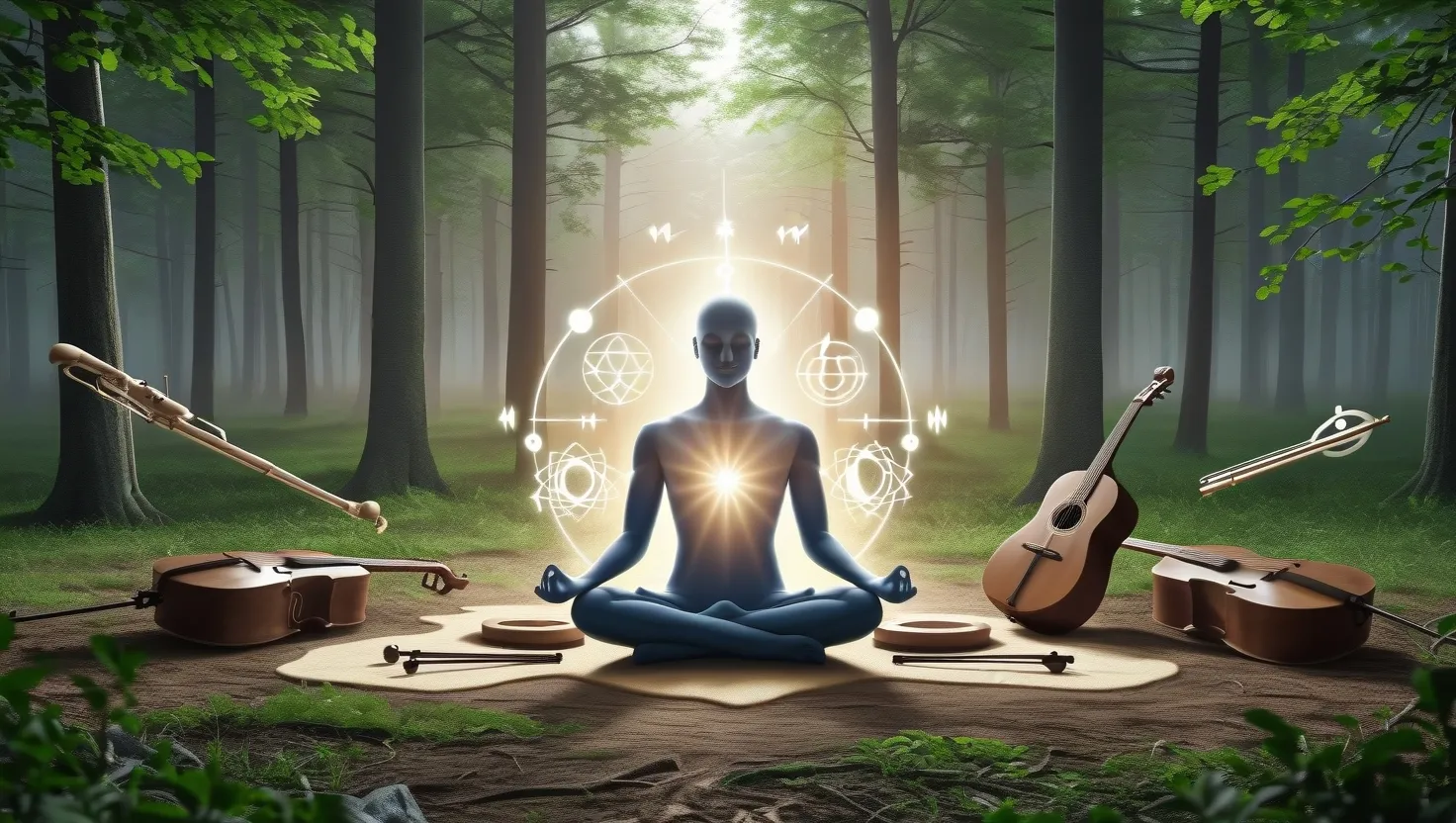In the vast and intricate landscape of Vedantic philosophy, there exists a concept that stands out for its profound and pervasive nature: Chidakasha, or the space of consciousness. This idea is not just a theoretical construct but a living, breathing reality that underpins all existence. To understand Chidakasha is to delve into the very fabric of our being and the universe around us.
Imagine a vast, endless sky that is not just a physical expanse but a metaphysical one, encompassing all that is, was, and will be. This is Chidakasha – the space of consciousness that holds the entire universe within it. It is the backdrop against which all experiences, thoughts, and emotions arise, persist, and eventually dissolve. This space is not confined to the physical heart or the brain; it is an all-pervading field that transcends the boundaries of the body and the mind.
In Vedantic thought, Chidakasha is often described as the abode of Lord Shiva and His Shakti, the divine feminine energy. Here, consciousness is not a product of the brain but an inherent quality of the universe, akin to the light and vibration that permeate every atom. This space is where the sound of Omkar, the cosmic vibration, originates. Omkar is not just a mantra but the very essence of creation, the sound that manifests the universe and sustains it.
To grasp the nature of Chidakasha, it’s helpful to consider the different levels of space as described in Vedanta. There is the material space of our physical world, the space we measure and navigate every day. Then there is the Pranic space, the realm of energy and life force that animates our bodies and the universe. Beyond these lies the mind space, where thoughts and emotions reside. But Chidakasha is something more profound – it is the space of pure consciousness, devoid of thoughts and emotions, yet containing all of them.
This space is often referred to as the Heart space or Hridaya Akasha, located within the spiritual heart. Here, the entire universe is reflected, much like a mirror reflects all that stands before it. This Heart is not the physical organ but a metaphysical center, accessible through the Crown Chakra at the top of the head. It is here that one can experience the Bindu Nada, a sound akin to the dull roar of the ocean or the vibration of a large bell, which signifies the absorption of the mind into pure consciousness.
The journey to experience Chidakasha is not an easy one; it requires a deep understanding of the subtle energies within us. According to ancient sages, the path involves the awakening of Kundalini Shakti, the dormant energy at the base of the spine. This awakening is facilitated by a Siddha Guru, a master who has attained liberation and can guide others on this path. The central channel, Sushumna Nadi, plays a crucial role in this journey, as it is the conduit through which consciousness ascends to the higher states of awareness.
In practical terms, this means cultivating a state of constant awareness, even in mundane activities. The goal of meditation, as emphasized by these teachings, is not to achieve a temporary state of calm but to maintain a continuous connection with the Bindu Nada. This state, known as true Dhyan and Dharana, allows one to live in the world without being bound by its dualities.
The concept of Chidakasha also sheds light on the nature of the Self. In Vedanta, the Self or Atman is not just an individual entity but a universal principle. It is the space that holds all existence, beyond the confines of time, space, and causality. This Self is not born and does not die; it is eternal and all-pervading. When we identify ourselves with this space, we transcend the limitations of the body and mind, experiencing a sense of freedom and boundlessness.
To realize this true nature, one must detach from the outer identifications – the body, the mind, and the social roles we play. This detachment is not about renouncing the world but about seeing through the illusions that bind us. As the ancient texts suggest, true Jnana or knowledge cannot be attained through external means like pilgrimages or rituals; it requires an inner transformation, a steady and introspective mind.
The figure of the Avadhoota, a perfect man who has conquered death and birth, exemplifies this state. An Avadhoota is beyond all dualities, seeing the universe as a unified whole. He has no consciousness of the body or the ego; he is the universe itself. This state is not just a theoretical ideal but a living reality that can be attained through the practice of yoga and the guidance of a true Guru.
In exploring Chidakasha, we are not just delving into a philosophical concept; we are embarking on a journey of self-discovery. This journey reveals that our true nature is not confined to the physical or mental realms but is an infinite, luminous space. By understanding and experiencing this space, we gain a fresh perspective on reality, one that is free from the constraints of the mundane world.
Meditation and self-inquiry are the keys to unlocking this understanding. By observing our bodies and minds from a place of inner awareness, we can move into the small space within the heart, where the entire universe resides. Here, all sorrow is released, and peace, happiness, and contentment become our natural state.
In essence, Chidakasha is not just a concept; it is our true Self, the space of consciousness that underlies all existence. It is the source of all creation, the sustainer of all life, and the ultimate goal of all spiritual seeking. By embracing this understanding, we can live a life that is not bound by the limitations of the physical world but is free, expansive, and filled with the light of pure consciousness.

